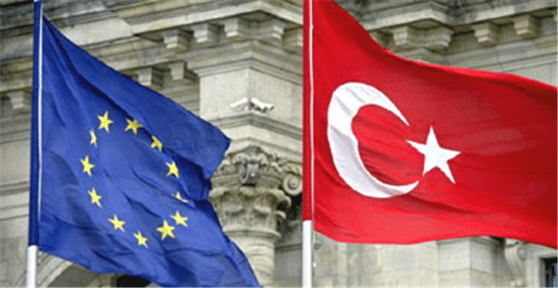SERTAÇ AKTAN
By giving political messages in crucial times and showing open support, or by dealing secretly behind closed doors, the United States always supported Turkey’s ambition to westernize.
The first important close encounter was made along military lines when Turkey joined NATO, while the second was Europe’s economically embracing Turkey. On Sept. 12, 1963 the very first economic and diplomatic move between the modern Turkish Republic and the European Economic Community, or EEC, was established with the Ankara Agreement. This important agreement was the key element of not leaving Turkey out of the big European economic integration plan. The U.S. chose this historical period to show its economic and military support and to give the powerful message that the U.S. backed Turkey as a European ally on both military and economic grounds.
 The Ankara Agreement was signed by the Turkish foreign minister and six European foreign ministers representing the EEC. Events that took place two days before the signature ceremony are significant in this respect. On Sept. 10, during an unplanned visit to Turkey, the NATO Supreme Commander General Lemnitzer declared the U.S. would present to Turkey an entire F104 battle fleet to Turkey, free of charge, emphasizing that Turkey was the most important country for NATO.
The Ankara Agreement was signed by the Turkish foreign minister and six European foreign ministers representing the EEC. Events that took place two days before the signature ceremony are significant in this respect. On Sept. 10, during an unplanned visit to Turkey, the NATO Supreme Commander General Lemnitzer declared the U.S. would present to Turkey an entire F104 battle fleet to Turkey, free of charge, emphasizing that Turkey was the most important country for NATO.
Furthermore, to prove his sincerity the very same day he awarded the most important top U.S. Medal of Merit to Turkey’s Chief of General Staff Cevdet Sunay. In his announcement Lemnitzer emphasized the importance of the Bosphorus and praised the efforts that Turkey had made toward westernization. He also remembered to mention a possible war and the very possible usage of the Bosphorus and Turkish ports by the West, especially Europe, against any enemy forces.
One day before the signing of the agreement, on Sept. 11, after issuing a clear statement on Turkey’s importance in defense and military terms, the U.S. further expressed its eagerness to provide financial assistance to Turkey and released $35 million in loans to the country. This low-interest credit was announced by U.S. Turkish Ambassador Raymond A. Hare and the then Turkish Minister of Finance Ferit Melen signed this credit immediately and declared that it would be used for the improvement of the 11th imports program. The next day, Turkey signed the Ankara Agreement without any doubt that it was being rewarded for establishing closer ties with the West.
Naturally, not all issues within EU-Turkey relations concern the U.S. directly. A former senior official in the Clinton administration once said: “Sometimes when it does not suit us to push an initiative directly, the British will put it forward instead.” So it would not be erroneous to suggest that, over time, Britain has become one of the most important conduits through which the U.S. can influence and control some European issues.
On Sept. 17, 1986, the Turkey-EC Association Council met, giving Turkey a new vision and enthusiasm to become an EC member. The reason for this new eagerness was that the European Community at the time was at a peak with the Single European Act, or SEA, signed in February the same year. Turkey had to be involved in this process before the SEA came into force in 1987 if it wanted to benefit from it. However, the timing for that to happen was not the best because Turkey was having serious problems with Greece. With Cyprus a bleeding wound for over a decade, things were becoming more complicated between the two parties everyday. It looked as if Greece was trying to generate every possible obstacle for Turkey and its interests, including the country’s economic and diplomatic relations with Europe.
Before the Association Council meeting in Brussels, rumors circulated throughout Turkey that Greece would veto Turkey’s entrance into the EEC whenever it could. Until the Association Council started, no European state addressed the rumor positively or negatively but the only rumor was that Washington was on the phone with London before the meeting.
When the meeting finished it was revealed that there was only one member to address the issue – Britain. When Turkish Foreign Minister Vahit Halefoğlu returned from the meeting he said these exact words in an interview: “Geofrey Howe, the foreign minister of Britain, personally told me that they are ‘green’ to proceed with Turkey’s entry and Greece will not be able to block the way with a veto or anything else.”
On whose behalf was Britain acting? For whom and how could it be binding? Although the Deputy Greek Foreign Minister Teodoros Pangalos refuted the whole ‘green light’ case after he returned to Greece, Britain made its point and showed its side by supporting Turkey on the issue. Turkey did not achieve a clear date of entrance to the EEC but it was obvious enough that normalization of relations after the 1980 coup d’état was begun at this Association Council meeting. It was important for Turkey and for the West that the country was back on track.
Relations did not breakdown again, until 1997.

Leave a Reply